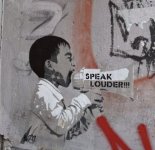In recent years, the tension between nationalism and free speech has intensified across several democracies, raising an unsettling question: are modern nation-states using patriotism as a weapon to silence dissent?
This issue is particularly visible in countries like India, the United States, and parts of Europe, where governments have come under scrutiny for labeling criticism as “anti-national.” While nationalism, at its core, is not inherently harmful, its weaponization can be. When governments and political supporters equate critique with betrayal, democracies begin to resemble authoritarian regimes in democratic clothing.
Take India, for example. In the past decade, students, journalists, and activists have been arrested or threatened for expressing views that challenge the state narrative—especially in sensitive areas like Kashmir, religious freedom, and minority rights. Laws like sedition or anti-terror statutes, meant to address real threats, are often invoked against peaceful dissenters. This isn’t just about law enforcement—it’s about shaping public discourse to ensure loyalty to the state rather than truth.
Similarly, in the United States, the rise of “patriotism policing” has grown in conservative circles. Athletes kneeling during the national anthem, journalists questioning foreign policy, or citizens criticizing systemic racism are often accused of being “un-American.” The First Amendment may technically protect speech, but social backlash, cancel culture from both sides, and institutional retaliation create a chilling effect.
Europe faces its own contradictions. France, for example, champions secularism and free expression, but critics argue it disproportionately targets Muslim voices under the guise of protecting French values. The line between integration and suppression becomes blurred, and policies meant to uphold liberty end up alienating minorities.
This growing intolerance is not an accident. Nationalist rhetoric is politically expedient—it unites people under a common identity, distracts from internal failures, and delegitimizes opposition. But when the state defines who belongs and who doesn’t, and who can speak and who must stay silent, democracy suffers.
Supporters of strict nationalism argue that dissent weakens national unity. But history shows the opposite: dissent is a sign of a healthy democracy. It is through disagreement, debate, and critique that nations evolve. Silencing voices, even unpopular ones, doesn't eliminate problems—it buries them until they erupt.
The challenge, then, is balance. Free speech must not be a license for hate, just as nationalism must not be a pretext for censorship. Democratic societies must develop stronger protections for speech, especially dissenting speech, and resist the temptation to brand every critic as an enemy of the state.
In the end, love for one’s country should mean a desire to make it better—not just louder chants, bigger flags, or unquestioning allegiance. A democracy that cannot tolerate dissent is one that is quietly dismantling itself.
This issue is particularly visible in countries like India, the United States, and parts of Europe, where governments have come under scrutiny for labeling criticism as “anti-national.” While nationalism, at its core, is not inherently harmful, its weaponization can be. When governments and political supporters equate critique with betrayal, democracies begin to resemble authoritarian regimes in democratic clothing.
Take India, for example. In the past decade, students, journalists, and activists have been arrested or threatened for expressing views that challenge the state narrative—especially in sensitive areas like Kashmir, religious freedom, and minority rights. Laws like sedition or anti-terror statutes, meant to address real threats, are often invoked against peaceful dissenters. This isn’t just about law enforcement—it’s about shaping public discourse to ensure loyalty to the state rather than truth.
Similarly, in the United States, the rise of “patriotism policing” has grown in conservative circles. Athletes kneeling during the national anthem, journalists questioning foreign policy, or citizens criticizing systemic racism are often accused of being “un-American.” The First Amendment may technically protect speech, but social backlash, cancel culture from both sides, and institutional retaliation create a chilling effect.
Europe faces its own contradictions. France, for example, champions secularism and free expression, but critics argue it disproportionately targets Muslim voices under the guise of protecting French values. The line between integration and suppression becomes blurred, and policies meant to uphold liberty end up alienating minorities.
This growing intolerance is not an accident. Nationalist rhetoric is politically expedient—it unites people under a common identity, distracts from internal failures, and delegitimizes opposition. But when the state defines who belongs and who doesn’t, and who can speak and who must stay silent, democracy suffers.
Supporters of strict nationalism argue that dissent weakens national unity. But history shows the opposite: dissent is a sign of a healthy democracy. It is through disagreement, debate, and critique that nations evolve. Silencing voices, even unpopular ones, doesn't eliminate problems—it buries them until they erupt.
The challenge, then, is balance. Free speech must not be a license for hate, just as nationalism must not be a pretext for censorship. Democratic societies must develop stronger protections for speech, especially dissenting speech, and resist the temptation to brand every critic as an enemy of the state.
In the end, love for one’s country should mean a desire to make it better—not just louder chants, bigger flags, or unquestioning allegiance. A democracy that cannot tolerate dissent is one that is quietly dismantling itself.

